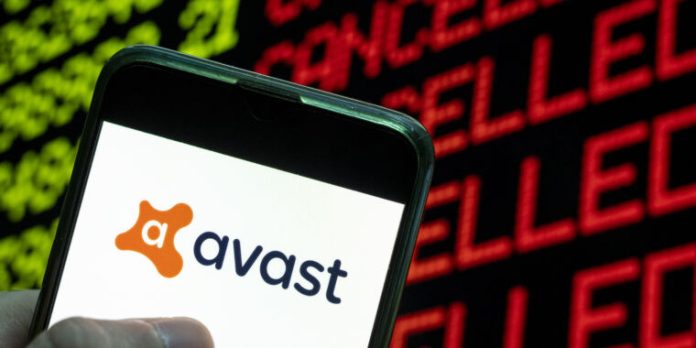Getty Pictures
Avast, a reputation identified for its safety analysis and antivirus apps, has lengthy supplied Chrome extensions, cellular apps, and different instruments geared toward rising privateness.
Avast’s apps would “block annoying monitoring cookies that accumulate information in your shopping actions,” and forestall net providers from “monitoring your on-line exercise.” Deep in its privateness coverage, Avast mentioned info that it collected can be “nameless and combination.” In its fiercest rhetoric, Avast’s desktop software program claimed it could cease “hackers earning money off your searches.”
All of that language was supplied up whereas Avast was accumulating customers’ browser info from 2014 to 2020, then promoting it to greater than 100 different corporations by means of a since-shuttered entity often known as Jumpshot, in response to the Federal Commerce Fee. Below a proposed current FTC order (PDF), Avast should pay $16.5 million, which is “anticipated for use to supply redress to customers,” in response to the FTC. Avast can even be prohibited from promoting future shopping information, should receive categorical consent on future information gathering, notify prospects about prior information gross sales, and implement a “complete privateness program” to handle prior conduct.
Reached for remark, Avast supplied a press release that famous the corporate’s closure of Jumpshot in early 2020. “We’re dedicated to our mission of defending and empowering folks’s digital lives. Whereas we disagree with the FTC’s allegations and characterization of the info, we’re happy to resolve this matter and sit up for persevering with to serve our hundreds of thousands of shoppers world wide,” the assertion reads.
Knowledge was removed from nameless
The FTC’s criticism (PDF) notes that after Avast acquired then-antivirus competitor Jumpshot in early 2014, it rebranded the corporate as an analytics vendor. Jumpshot marketed that it supplied “distinctive insights” into the habits of “[m]ore than 100 million on-line customers worldwide.” That included the power to “[s]ee the place your viewers goes earlier than and after they go to your web site or your rivals’ websites, and even monitor those that go to a selected URL.”
Whereas Avast and Jumpshot claimed that the information had figuring out info eliminated, the FTC argues this was “not enough.” Jumpshot choices included a singular system identifier for every browser, included in information like an “All Clicks Feed,” “Search Plus Click on Feed,” “Transaction Feed,” and extra. The FTC’s criticism detailed how numerous corporations would buy these feeds, usually with the categorical objective of pairing them with an organization’s personal information, right down to a person person foundation. Some Jumpshot contracts tried to ban re-identifying Avast customers, however “these prohibitions have been restricted,” the criticism notes.
The connection between Avast and Jumpshot turned broadly identified in January 2020, after reporting by Vice and PC Journal revealed that purchasers, together with Dwelling Depot, Google, Microsoft, Pepsi, and McKinsey, have been shopping for information from Jumpshot, as seen in confidential contracts. Knowledge obtained by the publications confirmed that patrons may buy information together with Google Maps look-ups, particular person LinkedIn and YouTube pages, porn websites, and extra. “It’s totally granular, and it is nice information for these corporations, as a result of it is right down to the system stage with a timestamp,” one supply informed Vice.
The FTC’s criticism gives extra element on how Avast, by itself net boards, sought to downplay its Jumpshot presence. Avast urged each that solely non-aggregated information was supplied to Jumpshot and that customers have been knowledgeable throughout product set up about accumulating information to “higher perceive new and attention-grabbing traits.” Neither of those claims proved true, the FTC suggests. And the information collected was removed from innocent, given its re-identifiable nature:
For instance, a pattern of simply 100 entries out of trillions retained by Respondents
confirmed visits by customers to the next pages: a tutorial paper on a examine of signs
of breast most cancers; Sen. Elizabeth Warren’s presidential candidacy announcement; a CLE course
on tax exemptions; authorities jobs in Fort Meade, Maryland with a wage larger than
$100,000; a hyperlink (then damaged) to the mid-point of a FAFSA (monetary help) software;
instructions on Google Maps from one location to a different; a Spanish-language kids’s
YouTube video; a hyperlink to a French courting web site, together with a singular member ID; and cosplay
erotica.
In a weblog publish accompanying its announcement, FTC Senior Legal professional Lesley Honest writes that, along with the twin nature of Avast’s privateness merchandise and Jumpshot’s in depth monitoring, the FTC is more and more viewing shopping information as “extremely delicate info that calls for the utmost care.” “Knowledge in regards to the web sites an individual visits isn’t simply one other company asset open to unfettered industrial exploitation,” Honest writes.
FTC commissioners voted 3-0 to challenge the criticism and settle for the proposed consent settlement. Chair Lina Khan, together with commissioners Rebecca Slaughter and Alvaro Bedoya, issued a press release on their vote.
For the reason that time of the FTC’s criticism and its Jumpshot enterprise, Avast has been acquired by Gen Digital, a agency that accommodates Norton, Avast, LifeLock, Avira, AVG, CCLeaner, and ReputationDefender, amongst different safety companies.
Disclosure: Condé Nast, Ars Technica’s father or mother firm, acquired information from Jumpshot earlier than its closure.


